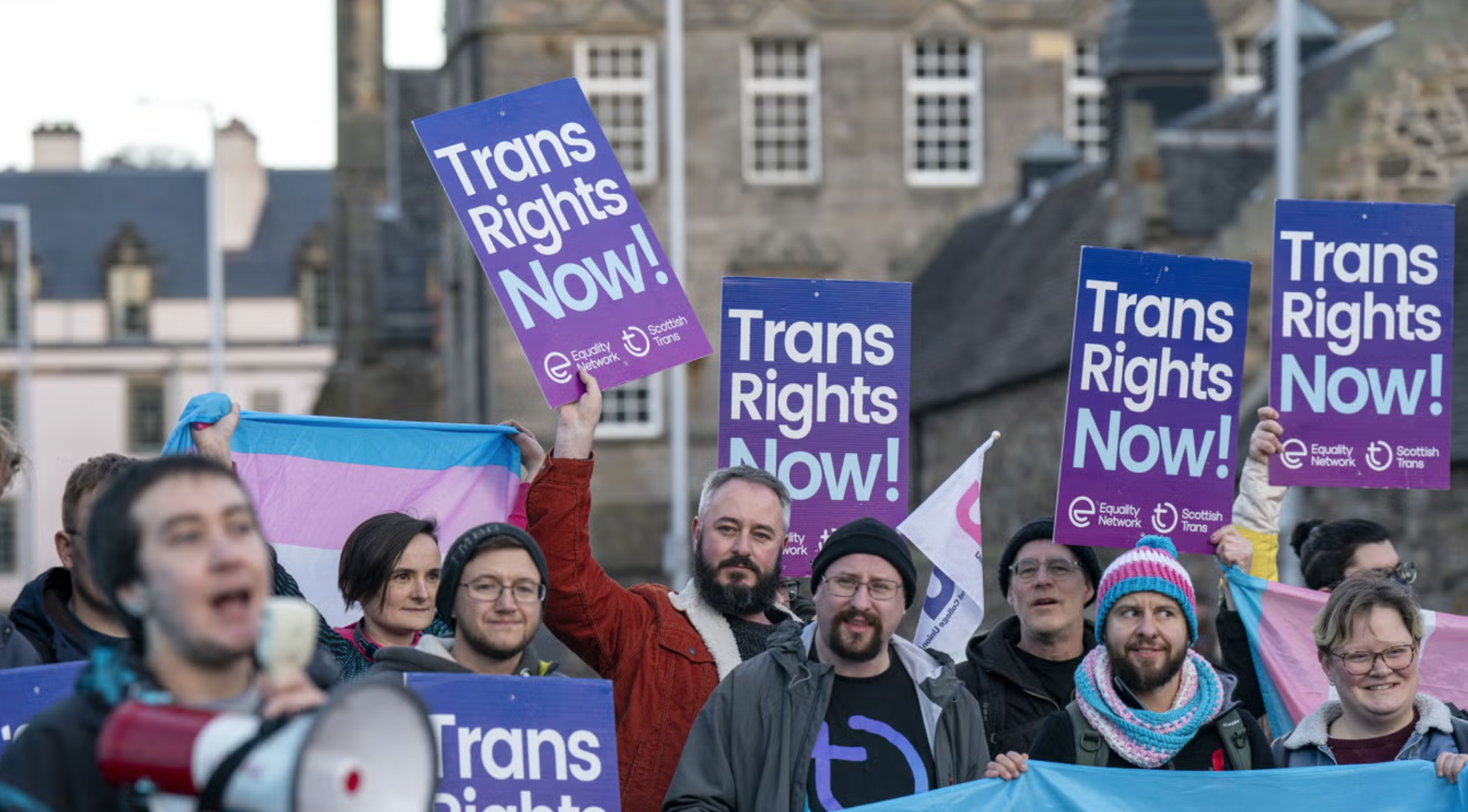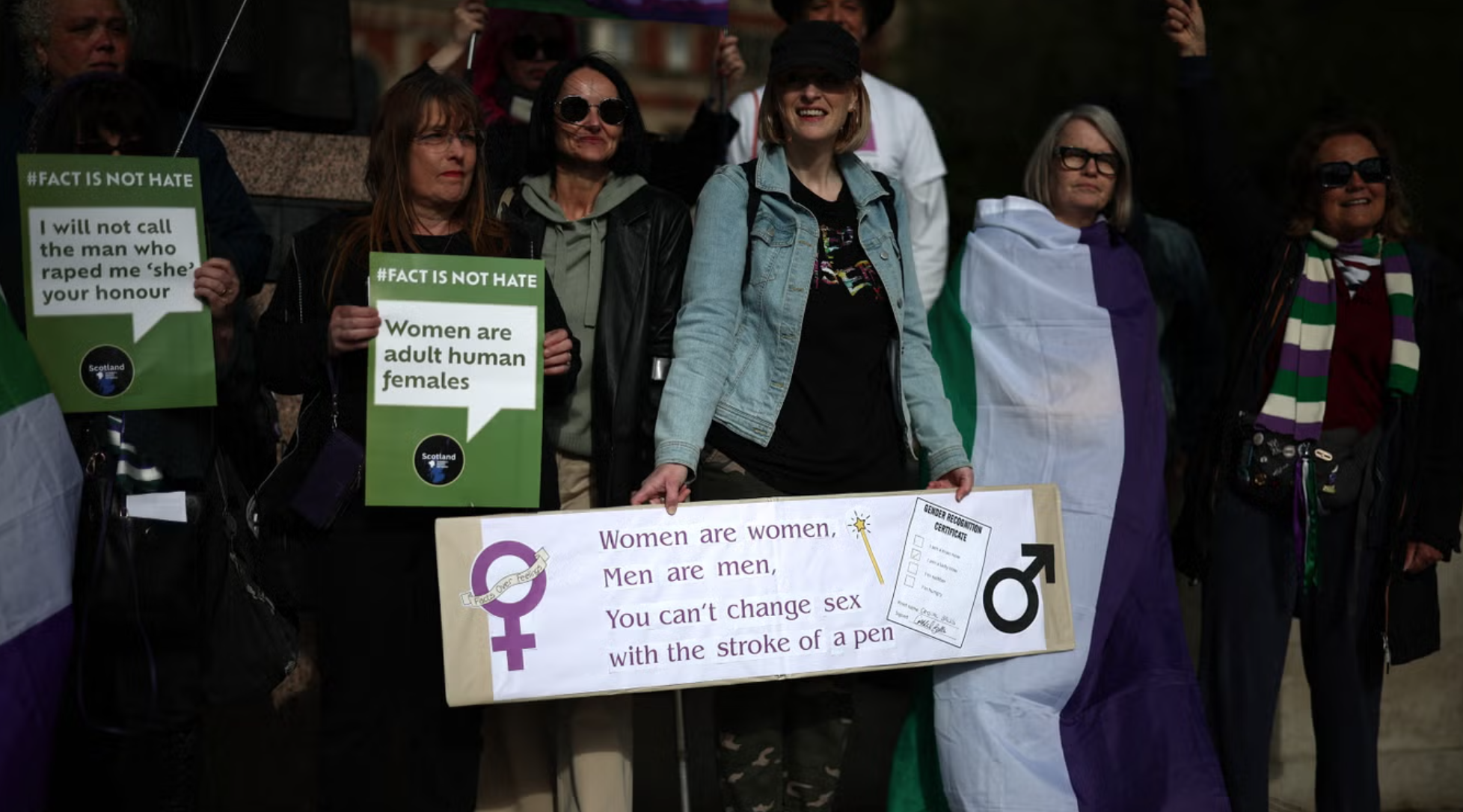
The UK’s Supreme Court handed down a judgment on Wednesday which has found that the terms “woman” and “sex” in the Equality Act refer to a biological woman and biological sex.
With potential long-lasting ramifications on how Britain treats its equalities policy, the dispute centres on whether or not somebody with a gender recognition certificate (GRC) recognising their gender as female should be treated as a woman under the 2010 Equality Act.
The ruling follows a series of legal challenges brought by the campaign group For Women Scotland (FWS), backed by Harry Potter author JK Rowling, over the definition of a “woman”.

The decision means that transgender women can no longer sit on public boards in places set aside for women. However, it could impact the way that trans people use single-sex spaces such as toilets, refuge spaces and hospital wards.
It is likely to reignite the contentious debate around sex and gender that has caused a headache for both Westminster and Edinburgh in recent years and renew pressure from campaigners on either side.





















